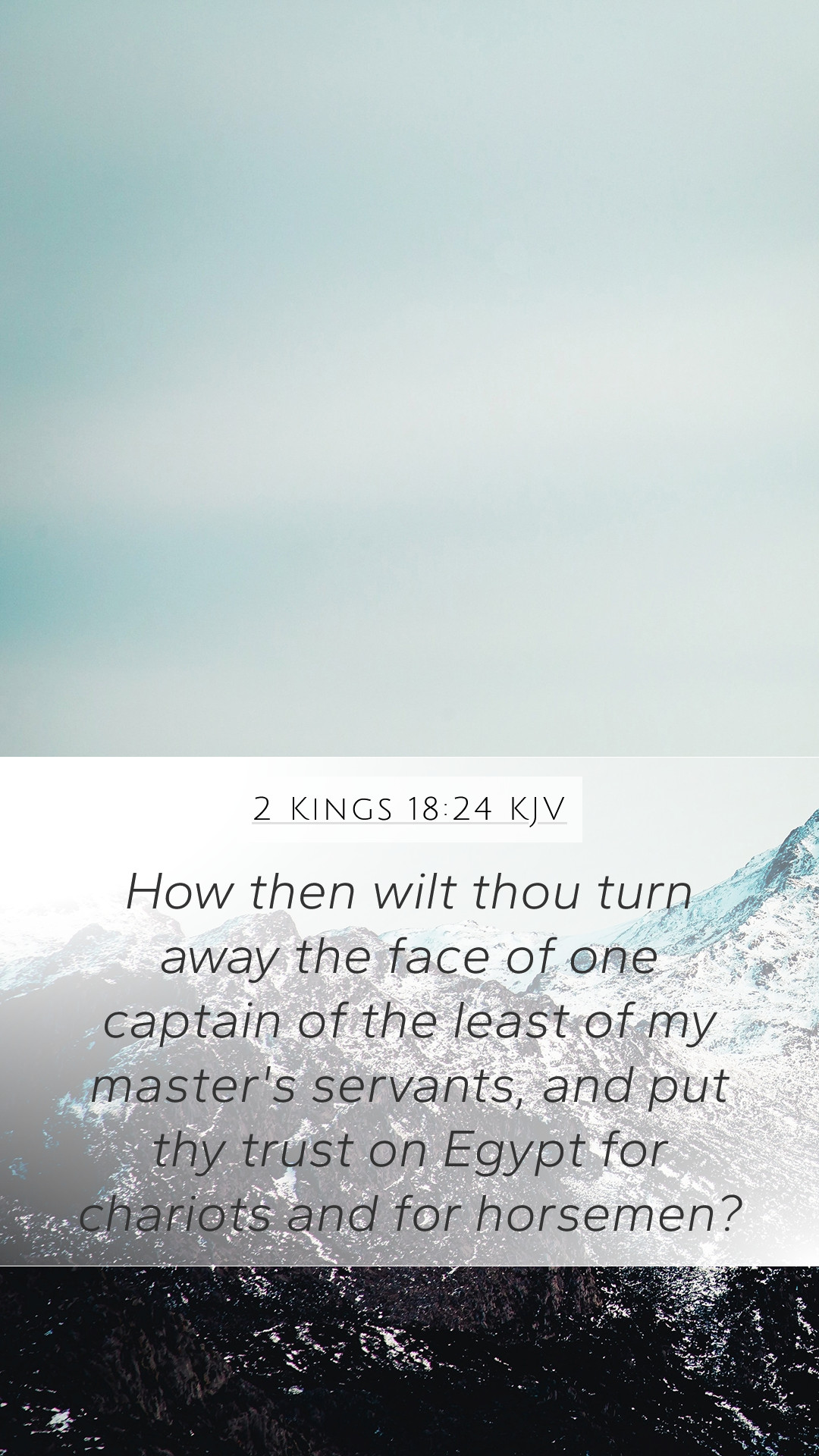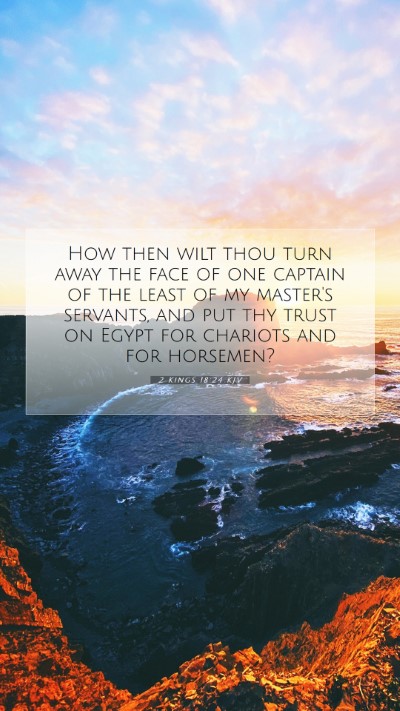Understanding 2 Kings 18:24
The verse 2 Kings 18:24 reads:
"How then will you turn away the face of the captain of the least of my master’s servants, and put your trust on Egypt for chariots and for horsemen?”
This verse occurs within the context of the Assyrian siege of Jerusalem during the reign of King Hezekiah. The Assyrian commander Rabshakeh is questioning the trust that the people place in Egypt for military support against Assyria.
Bible Verse Meanings and Interpretations
This verse highlights key themes of reliance, trust, and the futility of placing faith in earthly powers rather than in God. Let's explore the insights from public domain commentaries.
Commentary Insights
-
Matthew Henry:
Henry emphasizes that the verse illustrates the folly of relying on human powers like Egypt, which are weak when compared to divine might. He questions the wisdom of seeking assistance from a nation known for its own vulnerabilities, especially when facing the immense power of Assyria.
-
Albert Barnes:
Barnes points out that this verse is part of a larger discourse where Rabshakeh is attempting to undermine Hezekiah’s confidence. Through this rhetorical question, Rabshakeh implies that the Egyptian forces are insufficient to provide any real help against the Assyrians.
-
Adam Clarke:
Clarke elaborates on the historical context and stresses the expectation of divine help for the Israelites. He interprets Rabshakeh’s challenge not just as a military taunt but also as a spiritual one, where he tries to stir doubts about God's ability to protect His people.
Scripture Analysis
In a broader scriptural analysis, 2 Kings 18:24 serves as a reminder of past experiences where reliance on foreign nations led to failure. This is a recurring theme throughout the scriptures, which encourages Israel to trust in God for deliverance.
Key Themes
-
Reliance on God:
The verse underscores the necessity of placing trust in divine intervention, especially during times of crisis.
-
Rejection of Earthly Powers:
It suggests a rejection of alliances that can distract believers from their ultimate strength found in the Lord.
-
Human Limitations:
This verse further highlights the limitations of human strategies and encourages followers to reflect on the source of their strength.
Meaning of Bible Verses
To understand this scripture in detail, one should consider the implications it has on both ancient and modern readers:
-
Historical Context:
Understanding the political landscape of the time, where Egypt was perceived as a powerful ally, adds depth to the readings of this verse.
-
Personal Application:
Readers today can apply the warning against trusting in external assurances instead of relying on spiritual faith and divine promises.
Additional Bible Cross References
- Isaiah 30:1-3 - A warning against seeking help from Egypt.
- Psalms 20:7 - "Some trust in chariots and some in horses, but we trust in the name of the Lord our God."
- Proverbs 3:5 - "Trust in the Lord with all your heart and lean not on your own understanding."
Conclusion
In summary, 2 Kings 18:24 serves as a profound reminder of the futility of placing trust in human power as opposed to divine strength. Through careful biblical exegesis and commentary, we gain valuable insights that inform our understanding of reliance on God throughout our lives.


